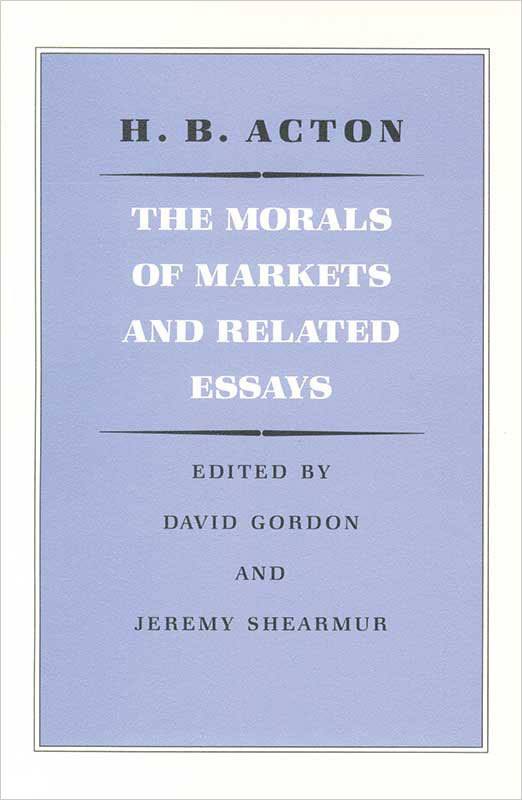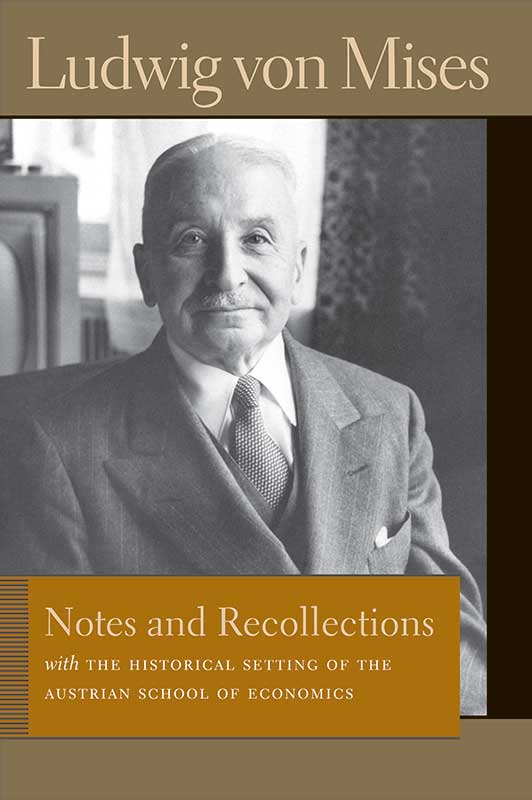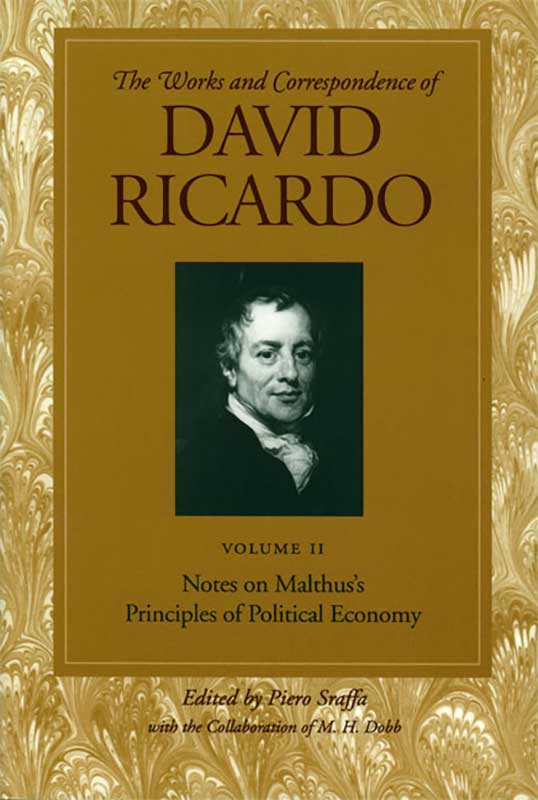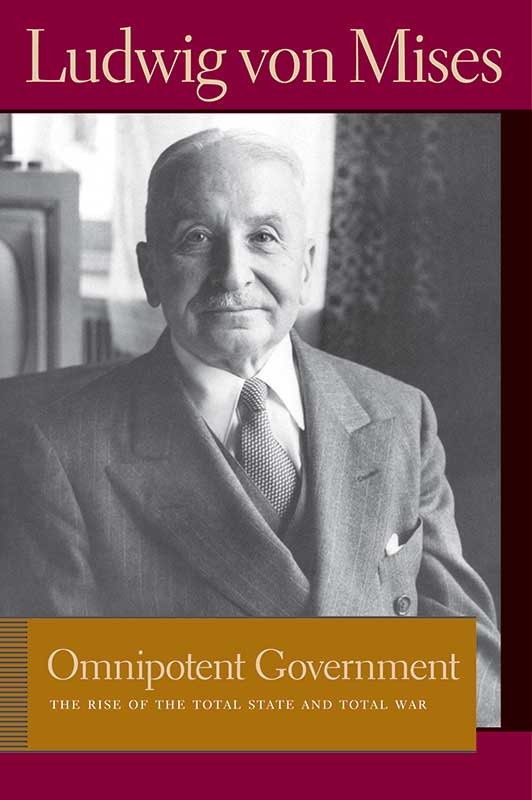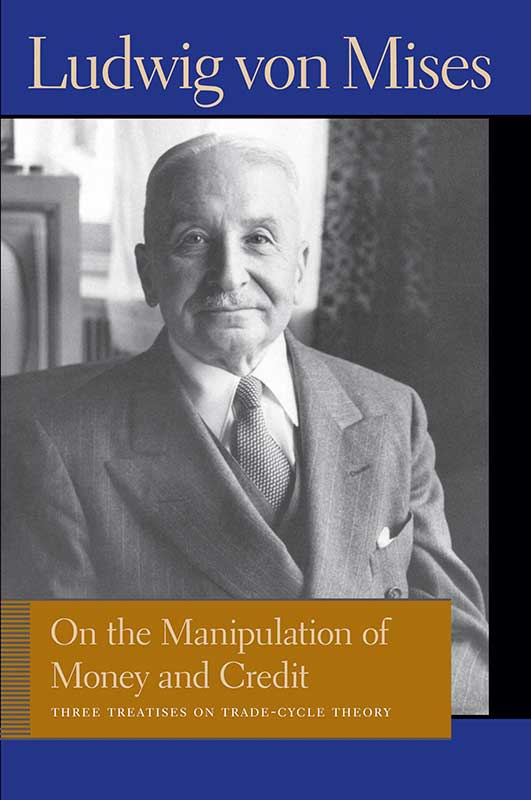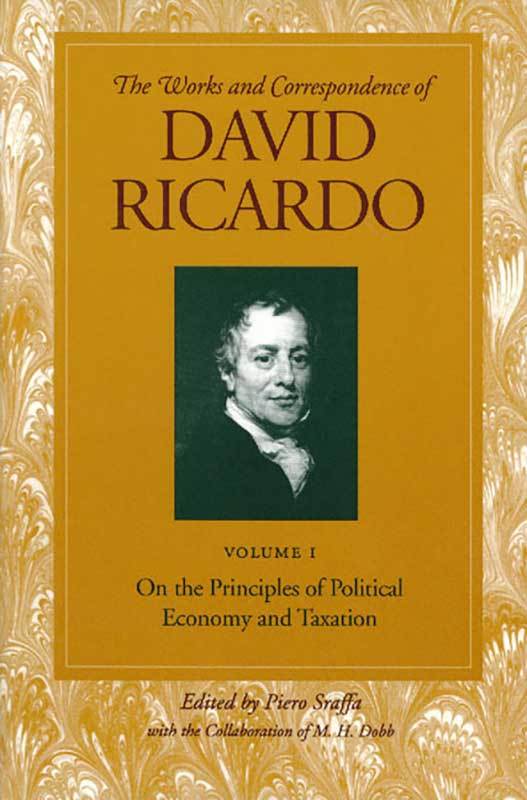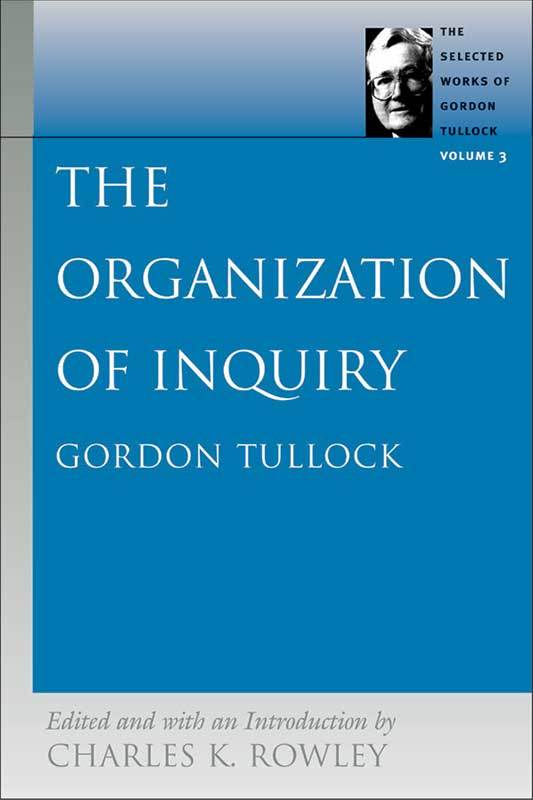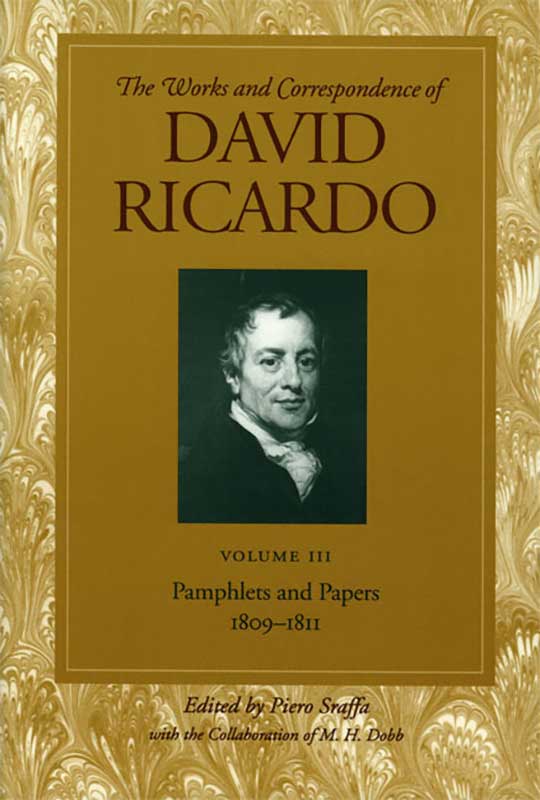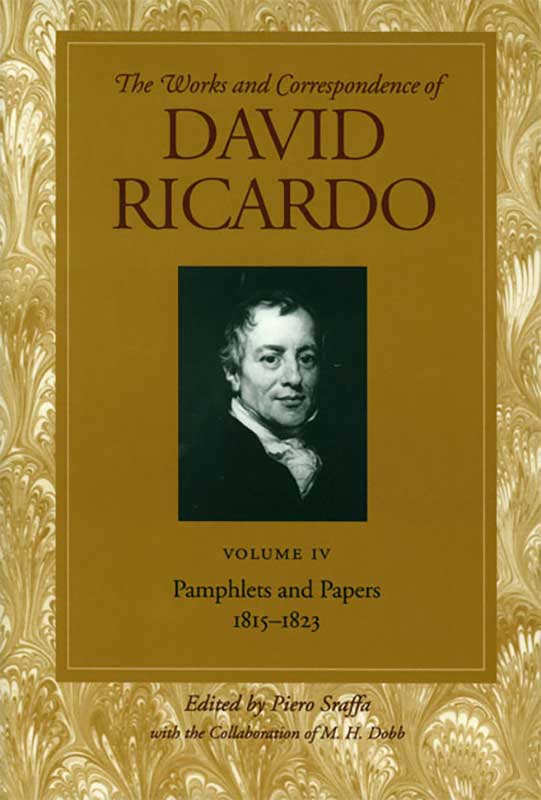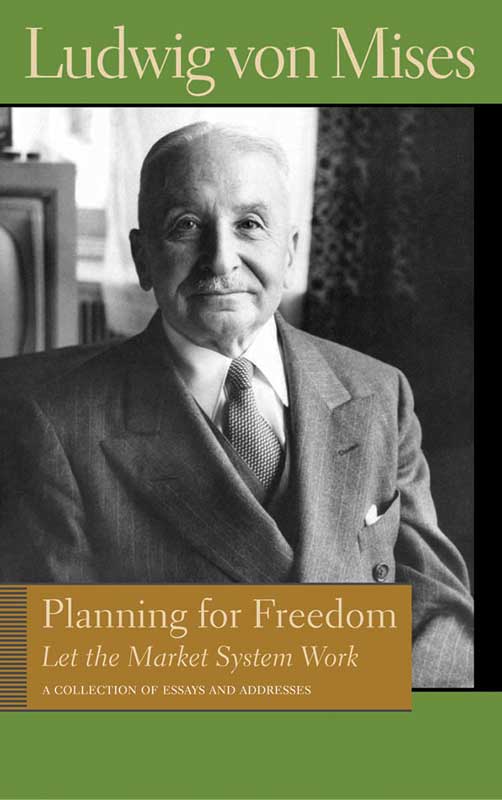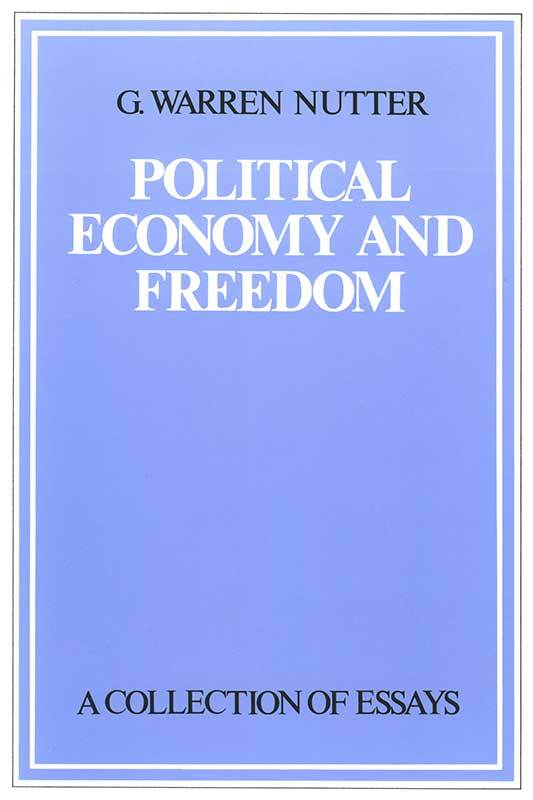Economics
Our economics collection showcases classic works in the discipline. Many of our titles explore how economic reasoning applies to political science and other social sciences, as well as the relevance of economics as moral philosophy. A consistent theme is the view that economics is the study of human choice and its consequences, both intended and unintended.
Download Catalog-
The Morals of Markets and Related Essays
by H. B. Acton
/ Learn MoreAlthough the market economy is not as unpopular now as when Acton wrote The Morals of Markets, the morality of buying and selling has long bothered man’s conscience. Defenses of capitalism often establish its efficiency or rely on a “that is the way human nature is anyway” argument. This book asserts that a free market is a necessary condition for…
-
Nation, State, and Economy
by Ludwig von Mises
/ Learn MoreEssential to Mises’s concept of a classical liberal economy is the absence of interference by the state. In World War I, Germany and its allies were overpowered by the Allied Powers in population, economic production, and military might, and its defeat was inevitable. Mises believed that Germany should not seek revenge for the peace of Versailles; rather it should adopt…
-
Notes and Recollections
by Ludwig von Mises
/ Learn MorePublished for the first time together in one volume is Ludwig von Mises’s Notes and Recollections with The Historical Setting of the Austrian School of Economics. Written between 1940 and 1941, shortly after he arrived in the United States, Notes and Recollections is in effect Mises’s pre-1940 intellectual autobiography. This work reveals how Mises developed his theories, wrote his books,…
-
Notes on Malthus’s Principles of Political Economy
by David Ricardo
/ Learn MoreDavid Ricardo and T. R. Malthus shared an endearing friendship despite a contentious divergence of opinion on many political economic issues. This volume contains the formal remnants of their differences. Ricardo analyzes, issue-by-issue, his points of divergence to Malthus’s Principles of Political Economy. Malthus’s contributions to political economics generally concern his bleak forecast that a geometrically growing population would surpass…
-
Omnipotent Government
by Ludwig von Mises
/ Learn MorePublished in 1944, during World War II, Omnipotent Government was Mises’s first book written and published after he arrived in the United States. In this volume Mises provides in economic terms an explanation of the international conflicts that caused both world wars. Although written more than half a century ago, Mises’s main theme still stands: government interference in the economy…
-
On the Manipulation of Money and Credit
by Ludwig von Mises
/ Learn MoreThe three treatises in On the Manipulation of Money and Credit were written in German between 1923 and 1931. Together they include some of Mises’s most important contributions to monetary and trade-cycle theories and constitute a precursor to Mises’s major work, Human Action. Ludwig von Mises (1881–1973) was the leading spokesman of the Austrian School of economics throughout most of…
-
On the Principles of Political Economy and Taxation
by David Ricardo
/ Learn MoreOn the Principles of Political Economy and Taxation provides analysis of the allocation of money between capitalists, landowners, and agricultural workers in Britain. Through this analysis, Ricardo came to advocate free trade and oppose Britain’s restrictive “Corn laws.” Here are his classic commentaries on certain points of contention and divergence with the political economic writings of Adam Smith and T.
-
The Organization of Inquiry
by Gordon Tullock
/ Learn MoreThe Organization of Inquiry, the third volume in Liberty Fund’s The Selected Works of Gordon Tullock, was originally published by Duke University Press in 1966. This is a treatise by one of the most stalwart practitioners of the scientific method in political economy—Gordon Tullock. Charles K. Rowley, Duncan Black Professor of Economics at George Mason University, writes in his introduction…
-
Pamphlets and Papers 1809-1811
by David Ricardo
/ Learn MoreThis volume focuses on Ricardo’s shorter essays printed in the Morning Chronicle, which deal exclusively with his thoughts on the inflationary monetary policy of the Bank of England and Britain’s consequent Bullion Crises. In these essays, the genesis of Ricardo’s theory of “hard money” emerges as a tool to hedge against inflation using metallic currency. The Bullion Committee, created by…
-
Pamphlets and Papers 1815-1823
by David Ricardo
/ Learn MoreThis volume contains a collection of assorted short essays written for publication in the latter part of David Ricardo’s life from 1815 to 1823. These essays include: “An Essay on the Influence of a low Price of Corn on the Profits of Stock” (1815), “Proposals for the Economical and Secure Currency” (1816), “Funding System” (1820), “On Protection to Agriculture” (1822),…
-
Planning for Freedom
by Ludwig von Mises
/ Learn MoreIn this anthology, Mises offers an articulate and accessible introduction to and critique of two topics he considers especially important: inflation and government interventionism. Mises believes inflation, that is monetary expansion, is destructive; it destroys savings and investment, which are the basis for production and prosperity. Government controls and economic planning never accomplish what their proponents intend. Mises consistently argues…
-
Political Economy and Freedom
by G. Warren Nutter
/ Learn MoreThese thirty-three essays, many of them previously unpublished, illustrate the broad range of Warren Nutter’s thought. There are essays on the Soviet economy and international relations as well as essays exploring the economic institutions that support a society of free people. One finds in these essays a man of intellect and judgment ever ready to look at the evidence and…
35% OFF YOUR ENTIRE BOOK PURCHASE
With promo code:
SUMMER2025
Expires July 31, 2025

